The Gaza War’s Hidden Front: Jordan’s Struggles with Diplomacy, Resources, and Stability
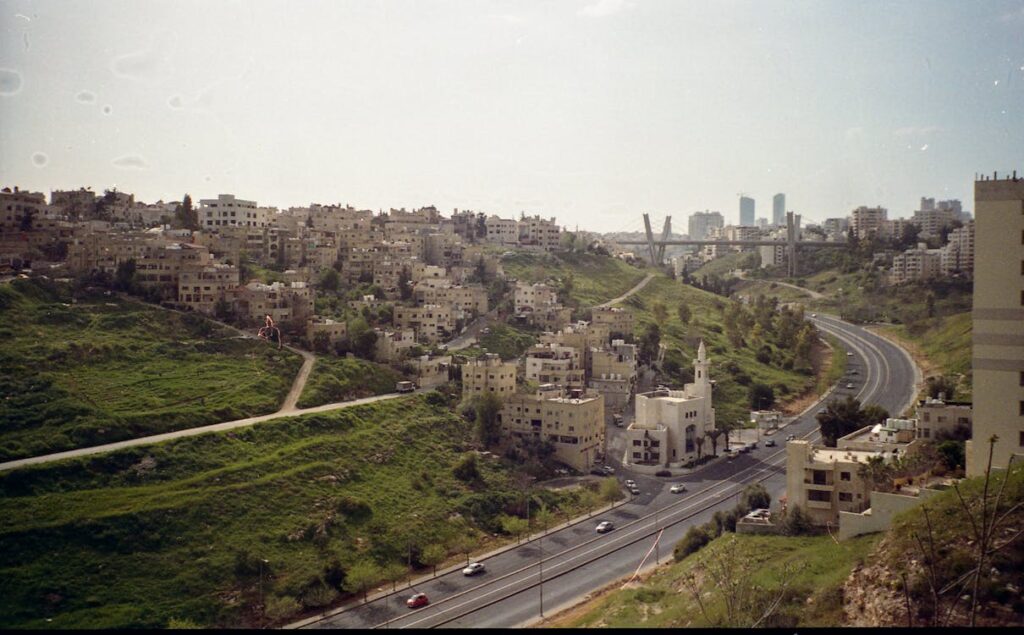
By: Yara Marei / Arab America Contributing Writer
As the sun rose over Amman, the usually busy streets felt quieter, as if reflecting the tension in the air. In the palace, King Abdullah II reviewed the latest news from Gaza, where the war threatened lives and the peace that Jordan has long worked to protect. Across the border, in Israeli-controlled lands, the water supply, so crucial to Jordan’s dry regions, was now caught in the middle of war and politics. In markets and government offices, people talked in hushed voices about the water shortages, fewer tourists, and stalled energy projects. Jordan, already struggling with economic challenges, now finds itself in a crisis it didn’t cause but one that deeply affects its future, further struggles will be discovered with Yara Marei, Arab America Contributing Writer.
This is the reality for Jordan today. The Gaza war is pushing the kingdom into a deeper crisis, with growing stress on its economy, disrupted tourism, a fragile peace contract with Israel, and stalled energy deals. As the war continues, Jordan must make hard decisions about its future and the well-being of its people.
The ongoing war on Gaza has placed immense pressure on neighboring Jordan, exacerbating the kingdom’s existing challenges and intensifying its need for strategic diplomacy. From strained economic resources to geopolitical maneuvering with Israel, Jordan finds itself in a precarious position that impacts both its domestic stability and regional role. Below, we explore the key stresses Jordan faces as the war in Gaza unfolds.
1. The Fragility of Jordan’s Water and Energy Resources
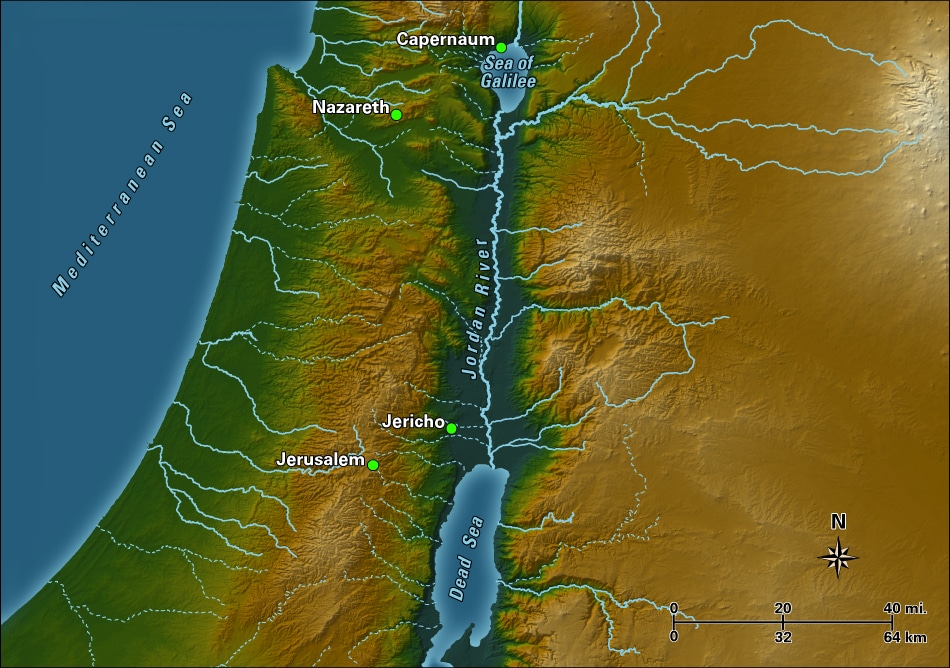
One of Jordan’s most pressing challenges has been its dependency on Israel for water supplies, which was originally Jordanian-Palestinian Arab lands containing the sources for the main rivers supplying Jordan with water (Jordan River, Yarmouk River, Zarqa River) and supplying the Jordanian aquifer groundwater.
At the same time, Israel has constructed massive dams on the sources of the Jordan River, including the Sea of Galilee, capable of storing over 150 million cubic meters of water, much of which naturally belongs to Jordan. This has exacerbated Jordan’s water scarcity, making it the second-most water-poor country in the world. The diversion of water from the Jordan River disregards its religious significance. As the site of John’s baptism of Jesus, the river holds profound meaning in Christianity, marking a pivotal moment in the life of Christ and a defining event for the Christian Church.
A sad reality shaped by the occupation of these water sources supplying Jordan. To minimize the losses, Jordan signed the 1994 Wadi Araba Peace Treaty, where the kingdom annually receives 55 million cubic meters of water from Israel, sourced primarily from the Sea of Galilee, with a small note in the treaty contract itself mentioning and granting the right for Jordan to request further amounts of water. However, Jordan’s water needs far exceed this amount, with the kingdom requesting an additional 50 million cubic meters in recent years. Israel has agreed, leading to a total supply of 105 million cubic meters of water, a critical lifeline for Jordan, but it was not as free or simple as the treat grantees!
In 2021, when Jordan requested additional amounts of water, Israel and the UAE brokered an agreement linking Jordan’s solar energy exports to Israel in exchange for desalinated water. However, the war in Gaza has halted progress on this project. The suspension of the electricity-for-water deal, exacerbated by Jordan’s refusal to renew its water agreements with Israel, underscores the kingdom’s delicate balance in meeting its own needs while preserving its sovereignty. Naftali Bennett, former Prime Minister of Israel, said regarding this issue, “Let the Jordanians die of thirst!”.
Jordan’s water deficit was severe and is now even more. The nation requires around 1 billion cubic meters annually just for drinking water and another 11 billion cubic meters to sustain its agricultural sector. As the second most water-scarce country in the world, Jordan’s reliance on Israel for this vital resource adds layers of vulnerability, particularly in times of this war and for the Israelis being hundred percent aware that they are the enemies of any Jordanians or Palestinians, whatever peace contracts are having with them.
2. Diplomatic Tensions: Israel’s Fragile Relationship

While Jordan and Israel maintain a formal peace, their relationship is far from harmonious, particularly in the wake of escalating violence in Gaza. In response to Israeli actions in Gaza, including attacks on the Jordanian field hospital and murdering Jordanian doctors in this hospital in Gaza, Jordan has expressed its discontent by suspending key diplomatic ties. King Abdullah II recalled the Jordanian ambassador from Tel Aviv and expelled the Israeli ambassador from Amman in a strong warning against Israel’s military operations.
Jordan’s decision to cut these diplomatic ties while simultaneously negotiating critical water deals places the kingdom in a complex and precarious situation. Israel has reportedly attached conditions to the renewal of water supplies, demanding that Jordan reinstate diplomatic relations, send the ambassadors back, and control its internal opposition against Israel, including significant figures like Jordan’s ministries, Royal Family members, and even the Jordanian population.
Jordan’s government, therefore, faces a difficult choice: prioritize the country’s immediate water needs or risk further strain on an already fragile water supply. while putting the lives of the Gaza people and Jordanian people on the same table, which is a very mean and inhumane strategy of Israel to make a division in Jordanian Palestinian lines or to make one life more important than the other, while they exist as one people with one blood and were not divided ever before Israel occupied the land. And even after!
3. Protecting Sovereignty: Airspace and Regional Tensions
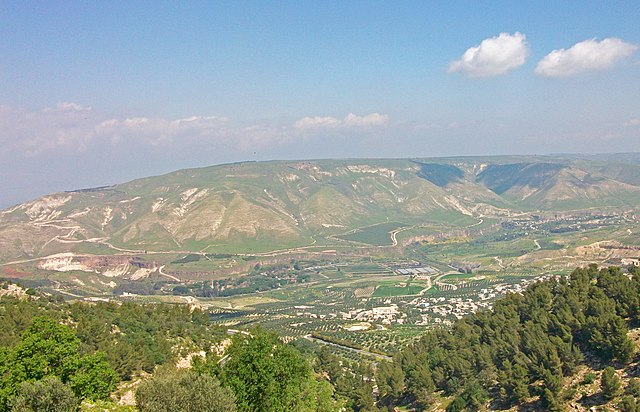
Another significant stress Jordan faces is the political and diplomatic pressure surrounding its airspace. King Abdullah and the Jordanian government are committed to safeguarding the nation’s airspace as an essential aspect of sovereignty and national security. Jordan has been firm in blocking any rockets or military activities from entering its airspace, whether from Israel or other countries.
Netanyahu requested permission to fly from Tel Aviv to the UAE through Jordanian airspace, but King Abdullah refused. Even when the UAE offered to facilitate the flights themselves by the UAE planes, the Jordanian government stood firm. On one occasion, when an Israeli aircraft holding Netanyahu attempted to cross Jordanian airspace without approval, the Jordanian military intervened, forcing the plane to take off in the Queen Alia Airport and warning the pilot and Netanyahu, and they turned back to Tel Aviv without completing their flight to UAE!.
This incident underscored Jordan’s unwavering stance: Jordanian airspace is not a battlefield for Israel, Iran, or any other war. King Abdullah and the Minister of Foreign Affairs Ayman Safadi have repeatedly emphasized that Jordan will not allow its skies to be used for military operations or as a passage for nations involved in regional tensions.
4. Tourism and Economic Decline
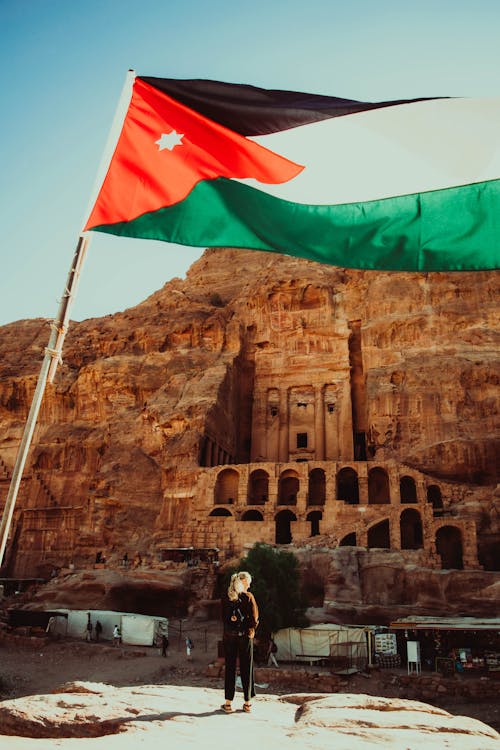
The war in Gaza has also dealt a significant blow to Jordan’s tourism and industrial sectors. Jordan, which relies heavily on tourism as a source of income, has seen a sharp decline in visitor numbers since the war began. Occupancy rates in many Jordanian hotels have fallen to zero, with the hospitality industry, including the nation’s 25,000 hotel workers, facing severe disruptions.
Additionally, Jordan’s industrial sector, which imports about 50% of its raw materials through the Red Sea, has been hit hard by disruptions in maritime traffic caused by the war. The movement of goods, vital for production in Jordanian factories, has slowed, leading to losses in both jobs and revenue.
The financial stress is further aggravated by boycotts of foreign companies that have ties to Israel. As these companies represent a key source of foreign investment, Jordan is experiencing a ripple effect across its economy, impacting the national treasury and the kingdom’s overall financial stability.
5. Jordan’s Geopolitical Role: Critical and Surrounded by Threats
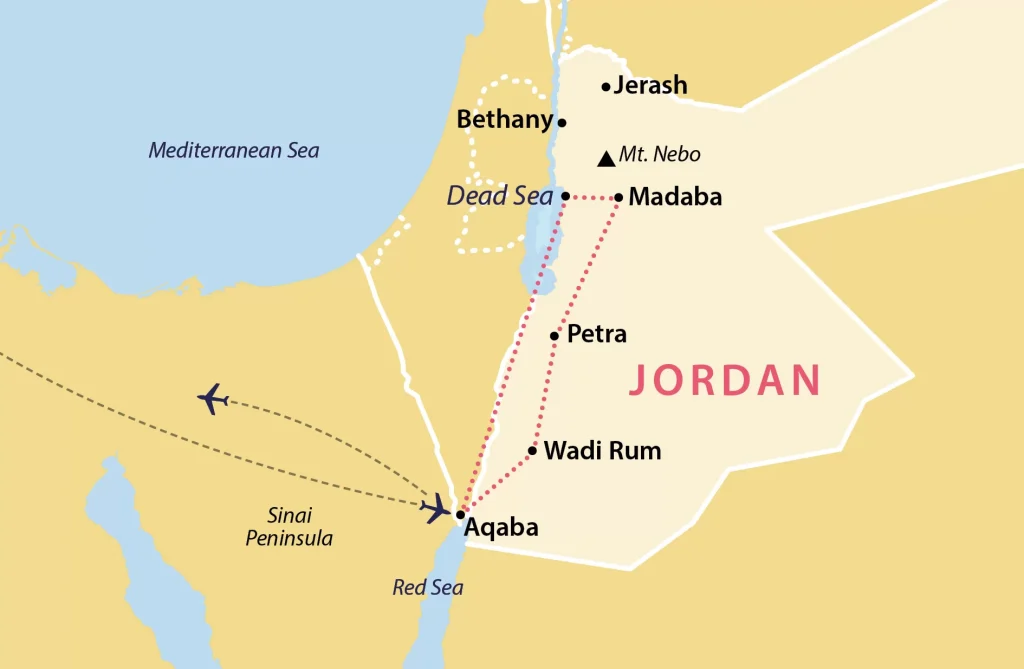
Despite Jordan’s internal challenges, the kingdom plays a vital role in supporting Palestine. Officially, the border between Jordan and Israel is also a border with the West Bank, meaning much of the goods exported through Jordan are intended for the West Bank, supporting Arab Palestinians who live there rather than directly benefiting Israel. Jordan’s land routes are key for the movement of essential goods, not only for Israel but also for the Palestinians.
Additionally, the recent war has led to blockades in the Red Sea, affecting both Jordan’s and Israel’s imports and exports. These blockades have severely disrupted Jordan’s industries, as many of its raw materials come through the Red Sea. The resulting financial strain adds another layer of difficulty to Jordan’s already fragile economic situation.
This dynamic highlights the complex relationship between Jordan and Israel. While Israel supplies Jordan with water, Jordan serves as a vital conduit for food and other goods to the Palestinian territories. As the Gaza war continues, Jordan faces the challenge of balancing its economic ties with Israel and its unwavering political support for the Palestinian cause.
6. The Future of the Water-Energy Deal
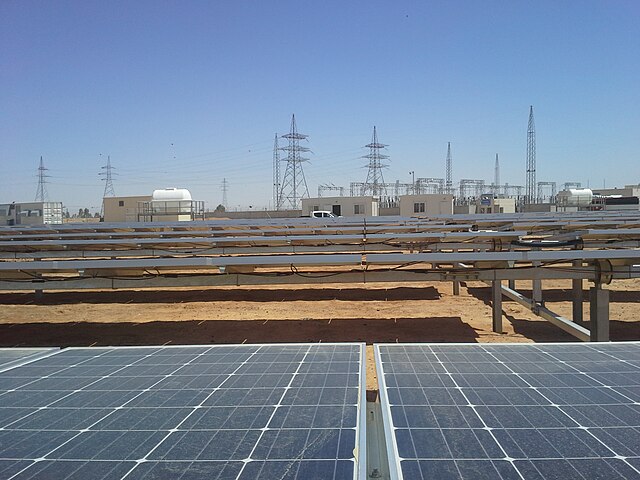
According to the agreement of Green Prosperity–Blue Prosperity mentioned above, between the U.S., UAE, Jordan, and Israel, it was signed a landmark water-energy agreement in which Jordan would export solar energy to Israel in exchange for desalinated water from The Mediterranean Sea. The UAE committed to fund the construction of solar plants in Jordan, while Israel would supply Jordan with much-needed water. At the same time, these solar projects will bring up many job opportunities for Jordanian engineers, where 35% of the population are engineers and the unemployment rate between them is 32%, which is catastrophic.
However, the Gaza war has put this deal on indefinite hold. Israel’s bombing of the Jordanian field hospital in Gaza and the injury of seven Jordanian doctors have led Jordan to refuse the agreement’s continuation. This halt in negotiations further complicates Jordan’s water crisis, leaving the kingdom with fewer options to meet its growing needs.
7. Strategic Choices: Balancing National Priorities
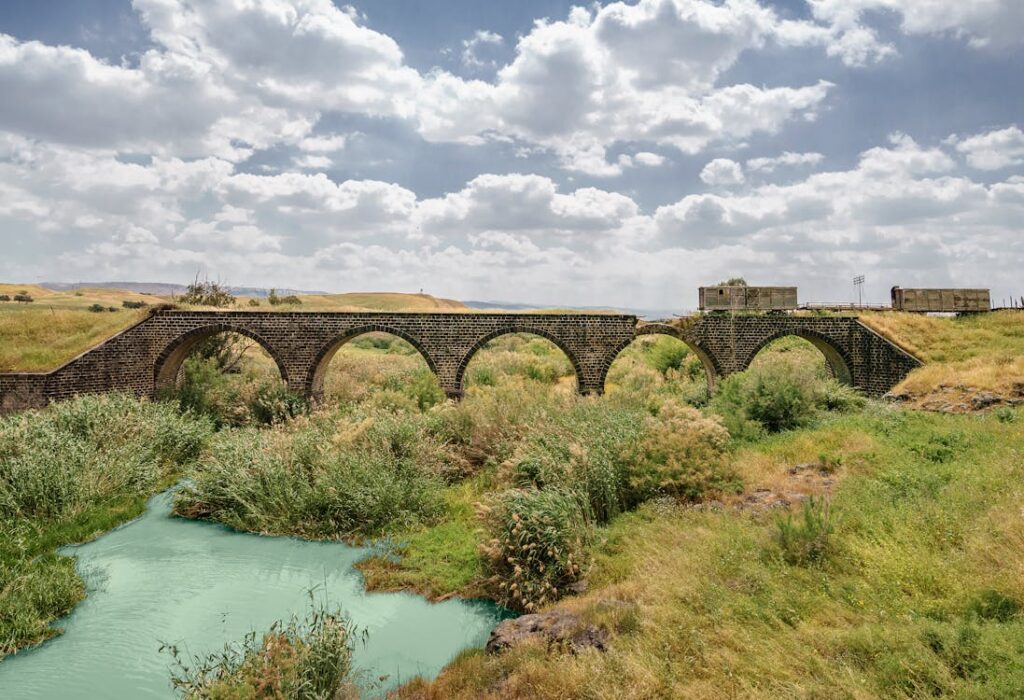
In light of these pressures, King Abdullah II and his government face strategic decisions. While the national water carrier project to desalinate Red Sea water remains a priority, its $4 billion price tag presents a formidable challenge for a country already grappling with an economic downturn. Though Jordan has secured $1.7 billion to fund the first phase, its ability to finance the rest remains uncertain.
The government’s current financial struggles, coupled with the economic impact of the war on Gaza, underscore the urgency of these decisions. Jordan must weigh the costs of continuing its current diplomatic stance against Israel with the need to provide essential resources for its people.
An Absolute Support Of Palestine

As the sun sets over Amman, the challenges facing Jordan remain as daunting as ever. Though the kingdom is not directly involved in the Gaza war, it is undeniably entangled in the war’s far-reaching effects. From economic setbacks to the delicate diplomatic balancing act with Israel, Jordan finds itself walking a tightrope, striving to protect its national interests without being swept away by regional chaos. The government must now navigate a path that preserves both Jordan’s stability and its historical role as a protector of Palestinian rights.
For the Jordanian people, it is disheartening to see the international community, including Arab allies and Western supporters of Palestine, underestimating the gravity of the challenges Jordan faces in this war. To many Jordanians, the bond with Palestine is not just political but deeply rooted in shared history, culture, and a brotherhood that transcends borders. Jordan and Palestine, in many ways, are one people united in struggle, faith, and hope for a better future. As the kingdom moves forward, its resilience will be tested, but so will its unwavering commitment to both its people and its neighbors.
See our blog here!








